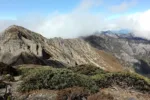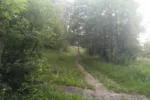Overcome Mental Challenges & Gain courage on Trail
This post may contain affiliate links. This means that we may receive a small commission from purchases through those links. Read more in our affiliate disclosure.
Hiking is more than just a physical journey; it’s a mental voyage that can take you through a spectrum of emotions and thoughts. As you traverse the trail, you might encounter moments of fear, anxiety, doubt, loneliness, and even boredom. But don’t fret, my fellow trail dwellers. These are not obstacles, but opportunities for growth and self-discovery.
Hiking presents a variety of mental challenges, including fear, anxiety, doubt, loneliness, and even boredom. These challenges stem from the uncertainties and physical demands of the trail, but they also provide opportunities for growth and self-discovery.
Fear and anxiety can be managed through preparation and embracing the unexpected. Doubt can be overcome by starting small, learning navigation skills, and gradually increasing hike difficulty. Loneliness on solo hikes can be transformed into enriching solitude through self-reflection. Boredom on long or familiar trails can be combated through mindfulness, nature observation, and listening to audiobooks or podcasts.
Embracing these mental challenges can lead to personal growth, a more enriching hiking experience, and a deeper connection with oneself and nature.
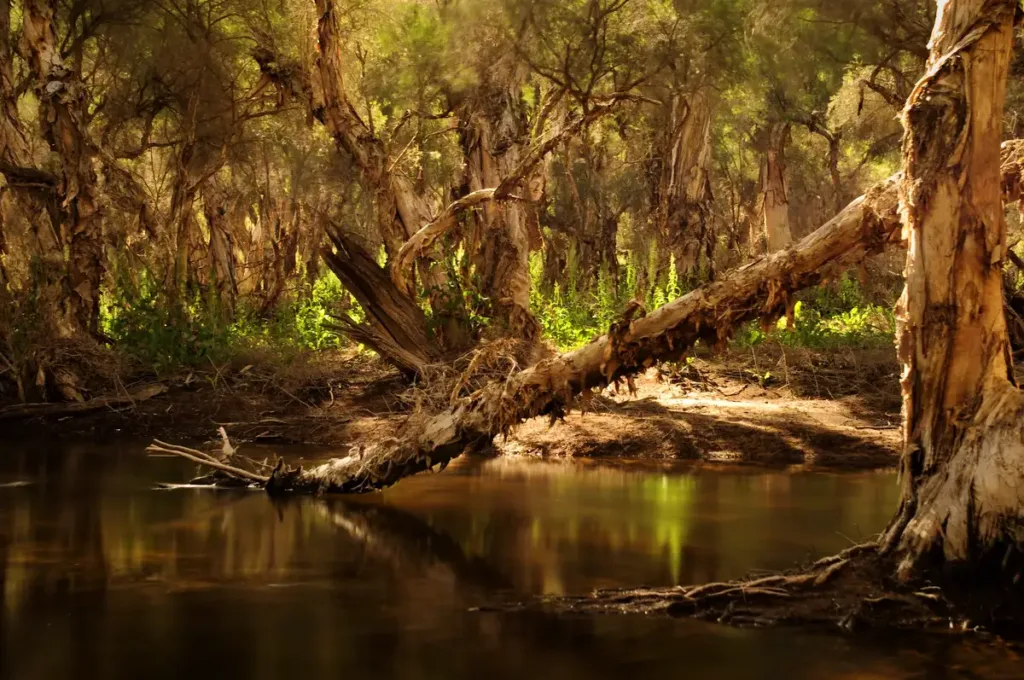
I, myself, have wandered off the beaten path and gotten lost in the woods more times than I can count. Often, I did it on purpose. You might wonder why. Am I crazy? Maybe. But there’s good reason for this habit of mine – I’ll explain it below.
Common Mental Challenges on hikes
Hiking, like any adventure, comes with its share of mental challenges. These challenges often stem from the inherent uncertainties and physical demands of the trail. Let’s delve into some of the most common ones:
Fear and anxiety are natural responses to the unknown. When you’re out on the trail, there are plenty of unknowns. You might fear getting lost, encountering wildlife, or facing harsh weather conditions. These fears aren’t just about the immediate situation; they tap into our primal instincts, harking back to our ancestors who faced these very real threats in their daily lives.
Doubt is another frequent visitor on the trail. You might question your physical ability to complete the hike or your navigation skills. Doubt can creep in when you’re pushing your limits, facing a challenging trail, or navigating unfamiliar terrain. It’s a reflection of our natural tendency to question ourselves when we’re outside our comfort zone.
Loneliness can be a challenge, especially for solo hikers. The trail can be a quiet place, and without the usual distractions and social interactions, you might feel a sense of isolation. This feeling often stems from our social nature as humans and the contrast between the bustling society we’re used to and the solitude of nature.
Finally, boredom can sneak up on you, particularly on long hikes or trails you’ve traversed before. Without the usual stimuli and pace of everyday life, the mind may feel understimulated. This is a testament to our fast-paced modern life, where constant engagement and stimulation have become the norm.
These mental challenges are a natural part of the hiking experience. They arise from the contrast between our modern, fast-paced, and socially connected life and the slower, quieter, and more unpredictable nature of the trail. Let’s have a closer look at each, and how to deal with them.
Fear and Anxiety on the Trail
Fear and anxiety are natural companions on the trail, arising from the inherent uncertainties of the wilderness. But with the right mindset and preparation, they can be managed and even transformed into enriching parts of your hiking experience.
One common fear is the fear of getting lost. The vastness of the wilderness can be overwhelming, and the thought of losing your way can be daunting. But, getting lost is not a dead-end, but a detour on your adventure. It’s an opportunity to hone your navigation skills and build your resilience. To ease this fear, it helps to prepare well. Familiarize yourself with the trail using maps and guides, and learn basic navigation skills. My guides on using landmarks for navigation and how to not get lost when nightfall surprises you can be helpful resources.
The fear of wildlife is another common anxiety. The rustle in the bushes or the snap of a twig can set your heart racing. But remember, most wildlife prefer to avoid human encounters. Educate yourself about the wildlife in the area you’ll be hiking, learn how to react to encounters, and always respect their space.

Weather-related anxiety is also common among hikers. A sudden change in weather can turn a pleasant hike into a challenging ordeal. To mitigate this, always check the weather forecast (for example, using a weather app specifically made for hikers) before your hike, learn to read the sky, and carry appropriate gear.
Embracing the Unexpected
But still, no matter how well you prepare, you can never anticipate all eventualities that you may encounter on your hikes. Sometimes, you get thrown into the deep end – and that’s a good thing.
The wilderness is unpredictable, and that’s part of its allure. It’s in these unexpected moments that we truly test our mettle. When the familiar trail suddenly looks unfamiliar, when the weather takes a sudden turn, when the day’s hike is tougher than you anticipated – it’s in these moments that you discover your true strength.
I’ve found myself lost in the woods more times than I can count, often on purpose. There’s a certain thrill in not knowing exactly where you are or where you’ll sleep tonight. It’s a primal fear, one that our ancestors likely faced on a regular basis. But let me tell you, experiencing this fear, it resets you. It puts all your everyday worries into perspective.
And after you’ve navigated your way back, relying solely on your own strength and wits, you might find you’ve gained an incredible amount of confidence. It’s a confidence that comes from knowing that you can face the unknown and come out the other side stronger. It’s a confidence that extends beyond the trail, seeping into your everyday life.
Once you’ve faced and overcome such a fundamental fear, the usual worries and anxieties of life don’t seem to bother you quite as much. You realize that you’re capable of more than you thought, and that the unknown, while scary, is also a space of potential and growth.
So, embrace these unexpected challenges. See them not as obstacles, but as opportunities for growth and self-discovery. After all, every hike is a journey, not just across the wilderness, but also into your inner self.
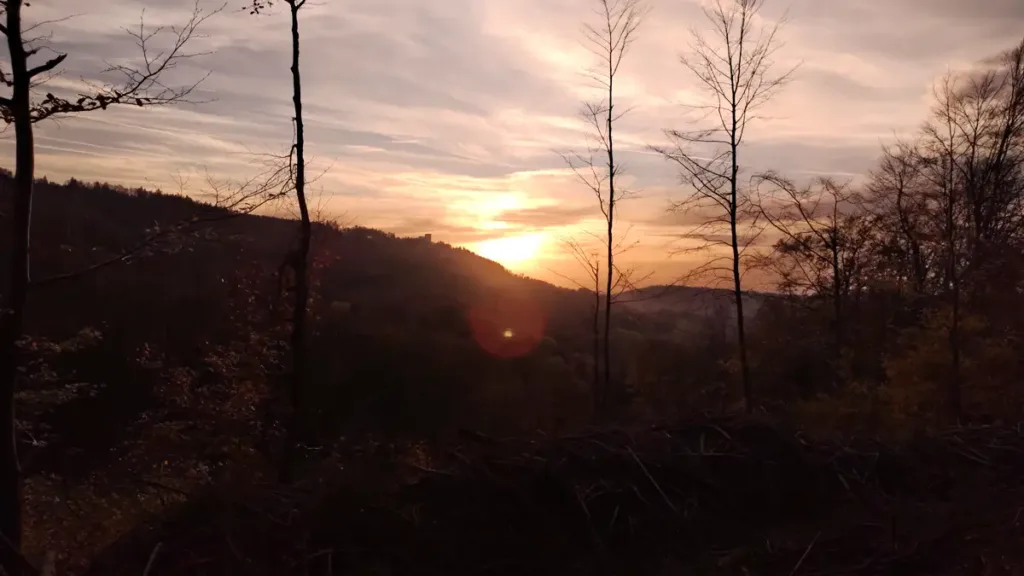
Overcoming Doubt and Building Confidence
Doubt is a tricky companion. It whispers in your ear, questioning your abilities and casting shadows on your confidence. On the trail, doubt can take many forms. You might question your physical ability to complete the hike, or your navigation skills. You might look at a steep incline or a winding path and wonder, “Can I really do this?”
But let me tell you, doubt, like fear, is not a roadblock. It’s a signpost, pointing you towards areas where you can grow. It’s an invitation to step out of your comfort zone and discover what you’re truly capable of.
So, how do you overcome doubt and build confidence on the trail? Here are a few strategies:
Start small. If you’re new to hiking or trying to build your confidence, start with smaller hikes. Choose trails that are well-marked and not too strenuous. As you complete each hike, you’ll gain confidence in your abilities and get a better sense of what you can handle.
Learn and practice navigation skills. Being able to navigate is a crucial skill for any hiker. It not only helps you stay on track but also boosts your confidence. Spend some time learning about different navigation techniques and tools.
Gradually increase the difficulty of your hikes. As you gain more experience and confidence, start challenging yourself with more difficult hikes. Choose trails with steeper inclines, longer distances, or more complex navigation. Each challenge you overcome will boost your confidence even more.
Aim a little bit above what you think you can do. This is where the magic happens. When you push yourself just beyond your comfort zone, you’ll be surprised at what you can achieve. And each time you surpass your own expectations, your confidence will soar.
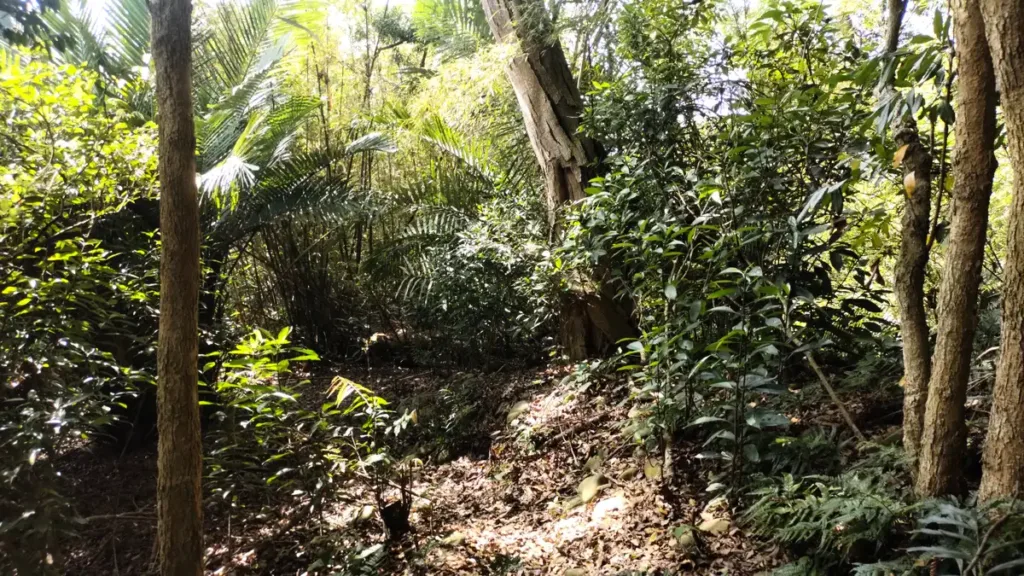
Dealing with Loneliness on solo hikes
Hiking, especially solo hiking, can sometimes be a lonely endeavor. As you traverse the trail, with only the rustling leaves and the chirping birds for company, you might feel a sense of isolation. This feeling of loneliness can be particularly pronounced if you’re used to the constant buzz and social interaction of modern life.
But let me tell you, loneliness and solitude are two sides of the same coin. While loneliness is a feeling of sadness due to lack of company, solitude is the state of being alone without feeling lonely. It’s about being comfortable in your own company and finding peace in the silence.
So, how do you transform feelings of loneliness into a peaceful solitude? Here are a few strategies:
See solitude as a time for self-reflection. The trail is a great place to reflect and introspect. Away from the distractions of everyday life, you can tune in to your thoughts and emotions. You might be surprised at the insights and clarity that come from these moments of solitude.
Enjoy the freedom of setting your own pace. One of the joys of solo hiking is the freedom it offers. You can hike at your own pace, stop when you want to, and choose the path that appeals to you. Embrace this freedom, and you’ll find that solitude can be liberating.
While it’s beneficial to disconnect and immerse yourself in the solitude of the trail, technology can be a useful tool if you start to feel too isolated. A call or a message to a loved one can provide a quick boost of social connection. But I recommend to experiment with limiting this as much as you can. Sometimes, the fear of loneliness is much worse than the loneliness itself. The more you can be alone with your thoughts, the more you stand to gain from the experience.
One practice I’ve found particularly helpful in embracing solitude is Shinrin-Yoku, or forest bathing. It’s a practice that involves immersing yourself in the forest atmosphere, and it can be a powerful way to connect with nature and with yourself. You can learn more about it here.
Combating Boredom
Boredom on the trail? It might seem unlikely, but it can happen, especially on long hikes or when traversing familiar trails. When the novelty wears off and the trail stretches on, your mind might start to wander, seeking the stimulation it’s accustomed to in our fast-paced, always-connected world.
But boredom, like all the challenges we’ve discussed, can be an opportunity. It’s a chance to engage with your surroundings in a new way, to slow down, and to truly be present. Here are a few strategies to combat boredom on the trail:
Practice mindfulness. Mindfulness is all about being fully present and engaged in the moment. It’s about observing your surroundings, tuning in to your senses, and quieting the chatter of your mind. One of my favorite ways to practice mindfulness on the trail is through the art of silent walking, a practice that encourages mindfulness and a deeper connection with nature. You can learn more about it here.
Engage in nature observation. Take the time to really look at your surroundings. Observe the plants, the animals, the rocks, the clouds. Each trail is a living, breathing ecosystem, full of wonders to discover.
Listen to audiobooks or podcasts. If you find your mind craving more stimulation, audiobooks or podcasts can be a great way to keep it engaged. Just make sure to keep one ear free to stay aware of your surroundings.
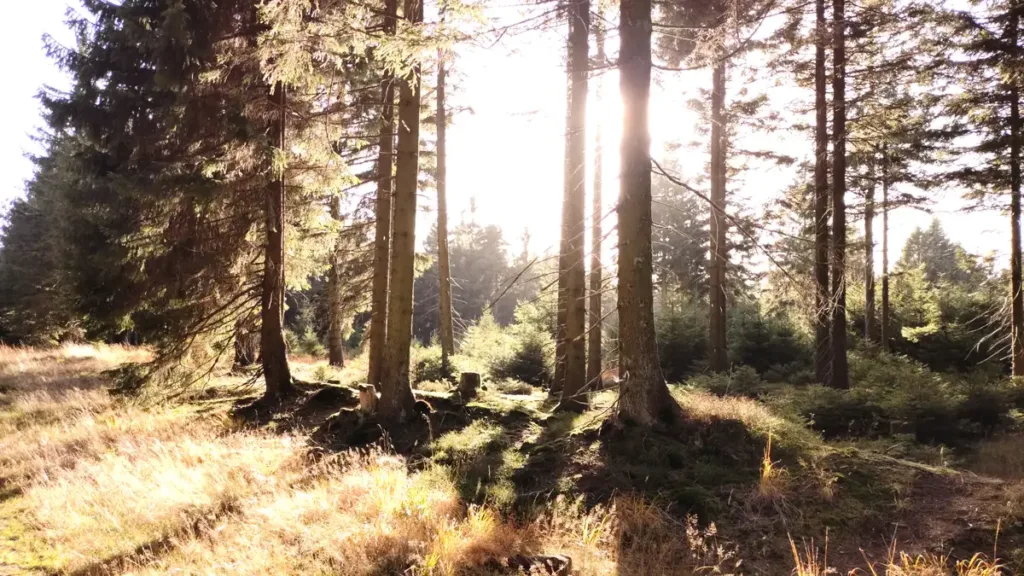
Conclusion
Hiking is more than just a physical journey; it’s a mental voyage that can take you through a spectrum of emotions and thoughts. Fear, anxiety, doubt, loneliness, boredom – these are not obstacles, but opportunities for growth and self-discovery.
Each challenge you face on the trail is a chance to learn, to grow, and to discover your own strength and resilience. And each time you overcome a challenge, you come out the other side stronger, more confident, and more in tune with yourself and the world around you.
So, embrace these mental challenges. See them not as roadblocks, but as signposts on your journey of self-discovery. Lace up your hiking boots, step onto the trail, and let the journey begin. After all, the trail is not just a path through the wilderness; it’s a path to discovering your true self. And who knows what you might discover along the way?


